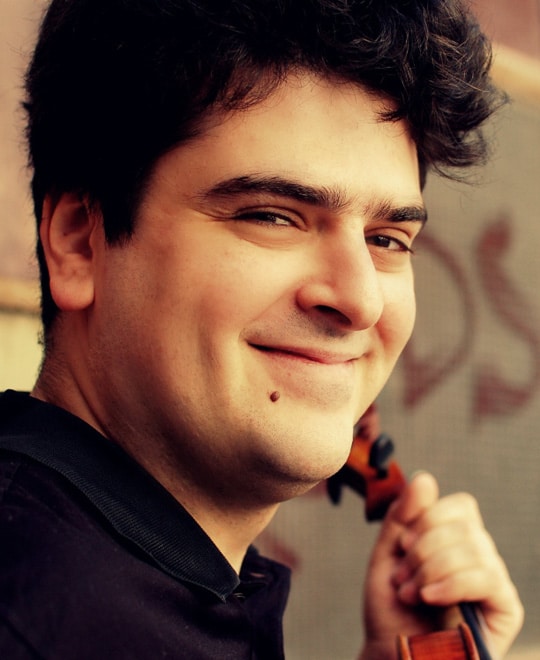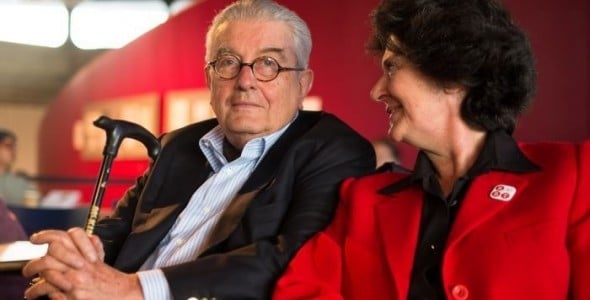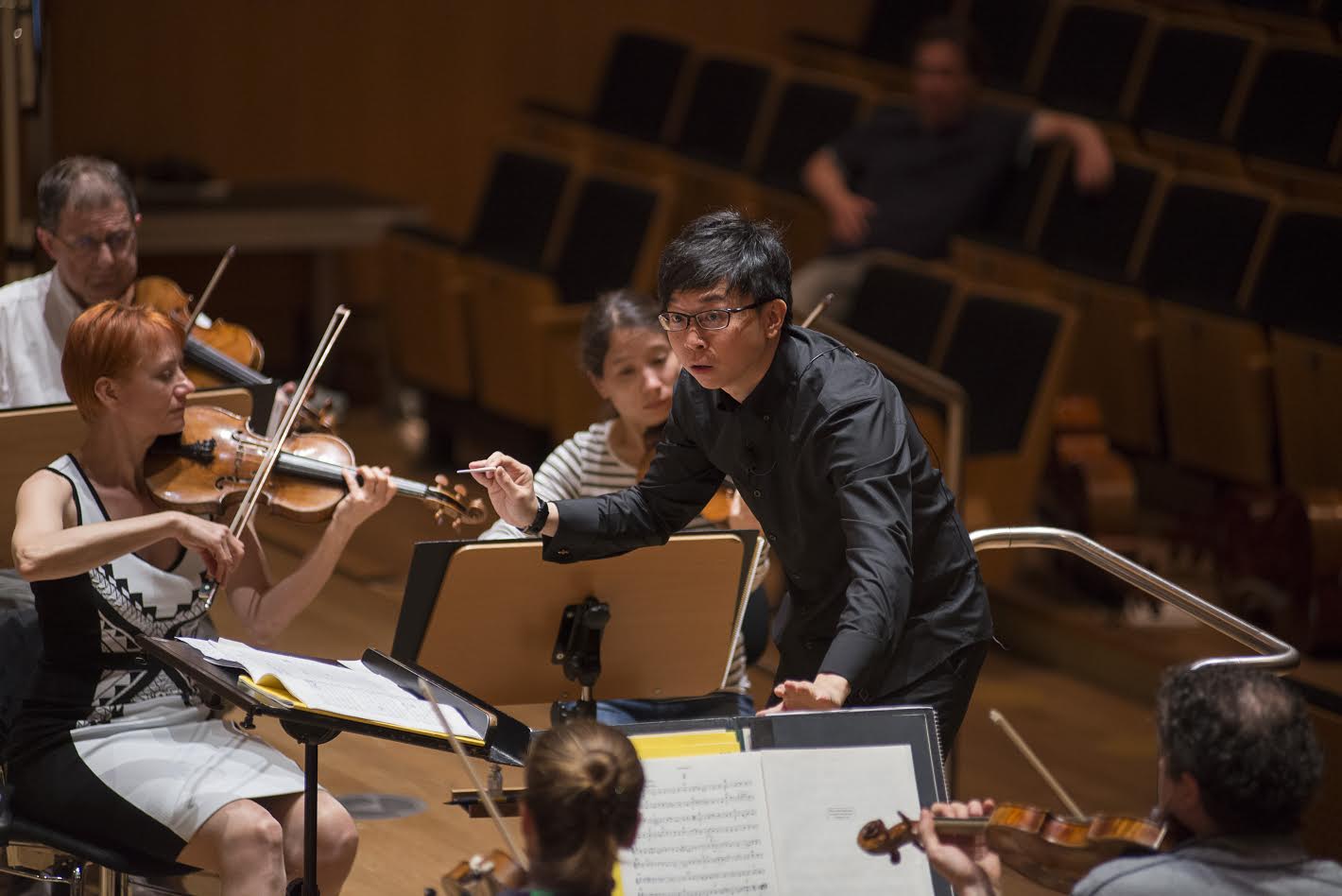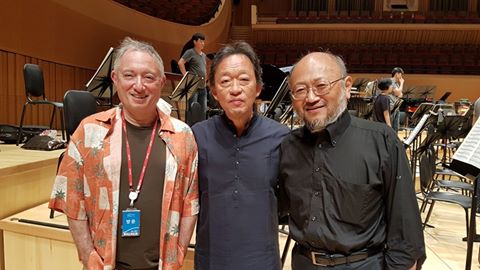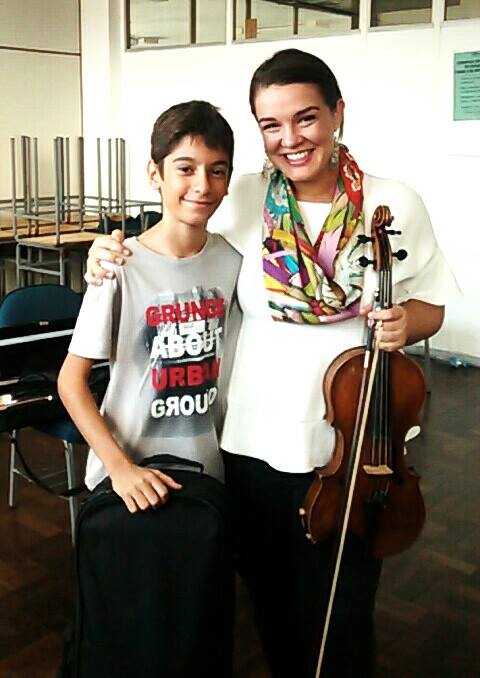After reading Slippedisc’s concerns about the Shanghai Isaac Stern Competition, the great violinist has shared the following satirical thoughts about the progressive degradation of competition industry.
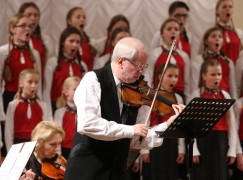
Competitions by Gidon Kremer
Amazing new competition rocks music world
An exciting new classical music competition held last week in Las Vegas has broken with long-established traditions. Its thoroughly innovative approach left audiences mesmerised, the winners speechless and jury members ecstatic.
To start with, the rules for selecting the winner incorporated a vitally important element that had previously been ignored or dismissed as irrelevant. The standard criteria of technical merit and artistic ability were supplemented by a “physical appearance” requirement. Marks were awarded in five subcategories, one of which was “glamour”. A degree of nudity among female competitors was obligatory. The amount of body movement and the number of changes in facial expression exhibited during the participants’ performances were also measured. No one who kept movement to a minimum had a chance of winning a prize.
Rivalry in this new category was particularly fierce. The rules were also enforced mercilessly. On the day of the final round, the audience was agog when one of the favourites (because of his ability to play exactly like one of the jury members) was eliminated on the spot for failing to wear a tie or a jacket. A young cellist from Georgia turned up in a dress that revealed too little cleavage and was only allowed to continue – on payment of a substantial fine – because her dress complied more than fully with the thigh exposure rulings.
Exciting innovations were also applied to technical merit and artistic ability. The benefits of modern technology are at last being applied to assessments of the arts! Technical merit was assessed technically – what else? Sensors were used to judge the precision of the pitch, a stop watch to judge the speed of a performance, and a decibel measuring instrument to judge the volume of sound and its variation during the performance. With staggering results!
“By taking advantage of technology, we wanted to bring music competitions into the 22nd century,” the organisers commented. “Apart from adapting the examples set by sports and beauty competitions, our aim was also to remove all doubts about the fairness of the jury’s decisions.”
In the category of artistic ability, vibration measures were used to score the beauty of the sound, while an applause meter (duration and volume of audience applause) was used to establish the overall success of the performance. The composer’s original markings – checked by a specially invented device which is able to follow the score bar by bar – determined the authenticity of the tempo. For the first time ever, the members of the jury were required to reveal the marks awarded to the individual competitors (in each of the three categories) immediately after each performance (as in figure skating).
Repertoire
In order to ensure a more objective view of musical interpretation, publishers were asked to include restrictions in the musical scores. This prevented candidates from playing a piece “too slowly” or “too fast”. In the future, works for which there are no appropriately marked scores will automatically be excluded from the competition repertoire.
As for the commissioned work, composers had to agree to include a certain number of notes and rhythmic challenges. The work performed last week also complied fully with the parameters previously known as “technical difficulties for orchestral musicians”, a further prerequisite for selection.
World-class jury
The star-studded jury included the famous violinist Sour Creamer, cellist Ninja Naisky and pianist Shorty Short. Their selection procedure broke new ground. Apart from submitting to a compulsory hearing test, they were required to provide home-made video or audio tapes of their own performances. They had also all attended preparatory courses on new technology, ratings and value assessment as well as on bias enhancement and self-profiling. All participants in the last three rounds of the competition had to vote for the jury member whom they wanted to judge their performance. Each candidate had only one vote.
Looking to the future
The resounding audience response to this new approach to classical music competitions has prompted the organisers, who all feature high up on the list of the world’s wealthiest people, to extend their techniques to other, related areas. Their foresight is astounding.
Starting next year, competition winners in all musical disciplines will be obliged to compete in further annual championships with rounds at regional, country-wide and worldwide levels. Capitalising on the success of this year’s competition, arrangements are also being made to introduce worldwide tours for all championship winners, similar to the ATP tours for tennis players.
“The enhanced objectivity in this competition immediately highlighted the potential for further development,” the organisers said. “We saw what was being done in the world of sport and thought, ‘Why not?’ Our present plans have the additional advantage of ensuring a higher income for jury members and event organisers.”
Licence to play
Also beginning next year, a new, annually renewable licence will be introduced to limit the number of unprofessional performances. The “licence to play” will be automatically issued to all competition winners. Without a licence, competitors will be effectively barred from all concert appearances.
Abuse of the licence will be subject to sanctions, the severest penalty being a three-year obligation to play 10 scales on stage before each recital and compulsory attendance at one of the new training courses for arpeggios and double stops.
New rating agency
What happens to winners once the competition is over? This neglected area will now be addressed in a proposal to track the activity of all winners by using a brand new scoring mechanism (i-play). The fewer concert appearances, the lower the score.
In order to contribute to the added value of competitions, further measures will be necessary to safeguard or enhance their status. “Based on practices in the banking sector, we are now busy setting up a rating system for all performing artists who cease to take part in competitions or who manage to avoid them entirely,” a spokesman for the competition sponsor, Grabitall Foundation, informed us.
The system will be monitored and updated by the well-established rating agency Substandard & Poorer, which will also assume the task of monitoring the i-play scores. All musicians worldwide will be obliged to play at a set number of international festivals. Records will be kept by Substandard & Poorer. Failure to gain a certain percentage of positive reviews will result in their disqualification as seeded artists. The decision of the agency will be final.
All ratings and records will be publicly available on the internet, the aim being to focus management’s attention and enhance their search for new “stars”. The most immediate advantage will be a marked reduction in the expenses incurred by managers while tracing new talent worldwide.
Further training
In conjunction with the University of Acoustic Distortion, courses leading to a diploma in artistic appreciation will be launched in the autumn. Further advice in this field is being sought from the internationally acclaimed Centre for Mindbending.
Similar courses to those attended by the jurors at this year’s competition are planned for agents and music critics. They will be of particular benefit for those who base their judgements on prejudice, gossip and rumours. Following a basic course on music appreciation, courses will include optional modules on mind-reading and subjective judgement.
For musicians, a degree programme that will include modules based on the above courses is particularly suitable for competition winners who are awarded top marks for “self-absorption”.
Modules on “developing ambition”, “conquering the world” and “how to be loved by mankind” will form part of the core curriculum. Each participant will also be obliged to spend at least nine hours a day listening to recordings of his or her own performances and to read a minimum of five reviews a day on his or her own playing. To prepare them even more fully for future competitions, they will be encouraged to take at least one course in Russian roulette.
Ensuring the future of music
The competition organisers are now seeking advice on the establishment of a worldwide accessible library of all annual competition recordings. Apart from the advantages of being able to compare artists’ performances, such a library would be the ideal means of making karaoke versions of the recordings available on the internet.
(c) Gidon Kremer/slippedisc.com



